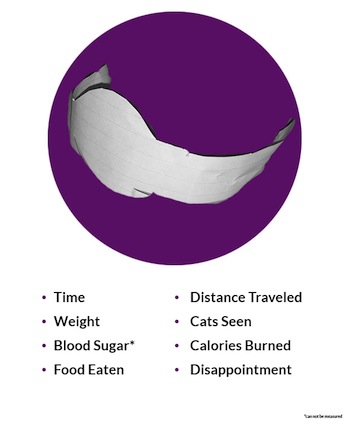 April 1st is come and gone, but the mobile health jokes are sticking around. Just this week, we saw a cutting Indiegogo satire of suspect health trackers like HealBe and the premiere of HBO's "Silicon Valley," which hit us with a pretty good riff on physician-entrepreneurs.
April 1st is come and gone, but the mobile health jokes are sticking around. Just this week, we saw a cutting Indiegogo satire of suspect health trackers like HealBe and the premiere of HBO's "Silicon Valley," which hit us with a pretty good riff on physician-entrepreneurs.
Started by someone calling themselves "Shane White", the Indiegogo page lasted about two days before being taken down by the site. It advertised a "Miracle Health Bracelet" using MHB CRAYONS technology and pictures on the campaign page showed a paper bracelet with tracking information scribbled on the surface. Subtle it was not.
"Miracle Health Bracelet is a lightweight, portable, easy to use way to automatically measure your fitness goals in a vague, scientifically-unfounded way. Simply wear it throughout the day to feel good about yourself," White wrote. "Miracle Health Bracelet doesn't require you to keep a food diary, scan bar codes, or take photos of your meals. It automatically measures calories consumed using 'MHB CRAYONS' Technology to combine a unique algorithm with a bunch of medical-sounding words, such as body reflexes, catharsis, physiotherapy and athletic taping."
Pando Daily, which has been doing some in-depth reporting on skepticism-inducing calorie-tracking bracelet GoBe from HealBe, pointed to the campaign as a take down of that company specifically -- or maybe even a test of Indiegogo's fraud detection systems, which Pando has called into question recently.
But the joke is much broader than that, playing on people's hunger for a bigger and better fitness bracelet and implying that, maybe, their selling point is more in "feeling good about yourself" than in an actual health benefit. Passive nutrition tracking is a particular on-point target, as it's the same promise made by HealBe and, before that, Airo, the latter of which refunded its backers after industry scrutiny.
 "Silicon Valley," meanwhile, folded its digital health humor into its pervading satire of Silicon Valley's "everyone's an entrepreneur" culture. In the pilot, main character Richard (Thomas Middleditch) finds himself having a panic attack after being offered $4 million for his advanced compression technology. He runs to the urgent care clinic, where his doctor (Andy Daly) asks "Would you be interested in an app for your smartphone that could tell you whether you're just having a panic attack or an actual heart attack?"
"Silicon Valley," meanwhile, folded its digital health humor into its pervading satire of Silicon Valley's "everyone's an entrepreneur" culture. In the pilot, main character Richard (Thomas Middleditch) finds himself having a panic attack after being offered $4 million for his advanced compression technology. He runs to the urgent care clinic, where his doctor (Andy Daly) asks "Would you be interested in an app for your smartphone that could tell you whether you're just having a panic attack or an actual heart attack?"
"That sounds great," Richard replies.
"You would? That's great news, because it's still in prototype phase right now, but my startup partners and I are looking for investors. So if you do end up taking that money, please let me know."
Which, of course, sends Richard straight into another panic attack.
As I observed back when Scripps Health Chief Academic Officer Eric Topol showed up on the Colbert Report, jokes are a good bellwether for public awareness of digital health. I hope that the digital health crowdfunding campaigns we cover will be more substantial than Miracle Health Bracelet. And I hope the physician entrepreneurs we cover will be better doctors -- and better entrepreneurs -- than Andy Daly's character on "Silicon Valley".
But even so, the jokes are a good sign that consumer-focused digital health is going more and more mainstream.

















